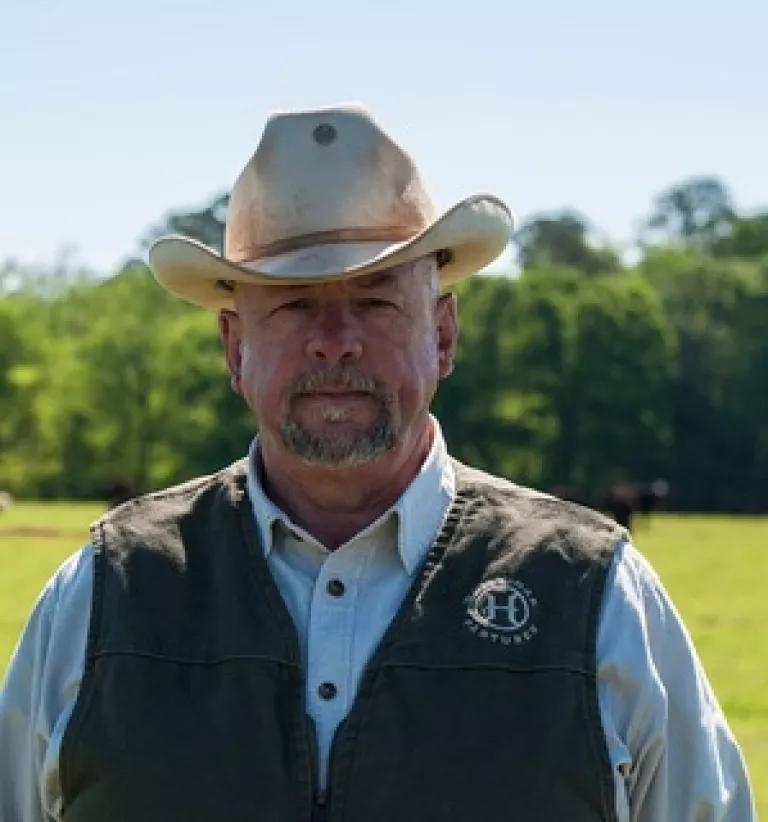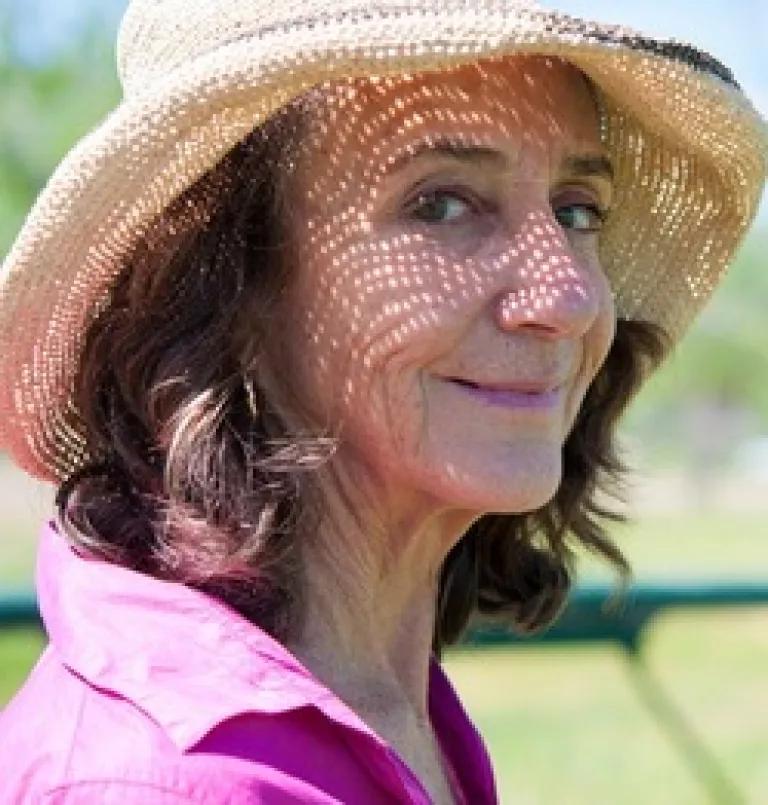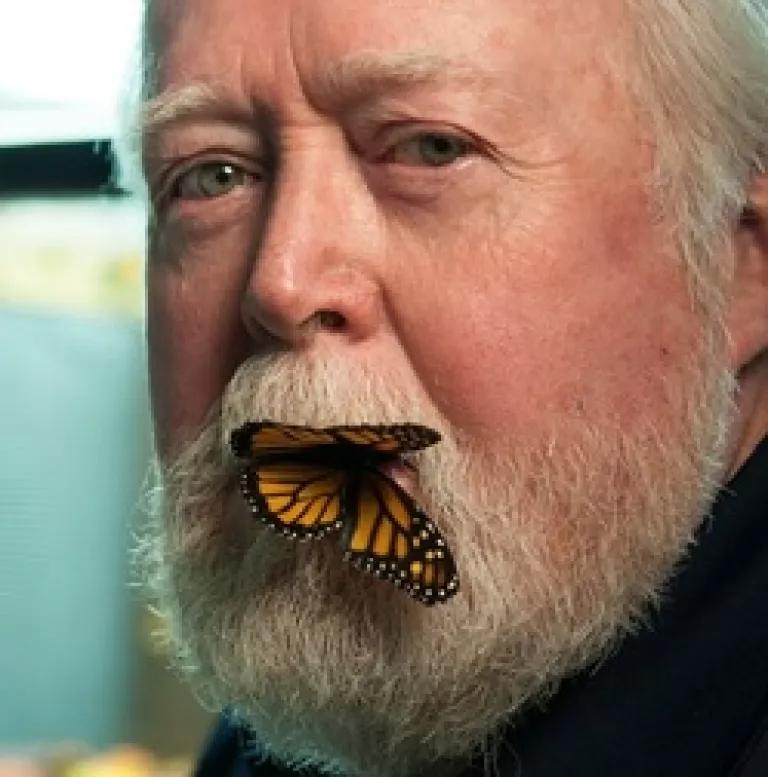
Sometime in the mid-1990s, Will Harris looked around at the Georgia farm that had been in his family for more than a century, and decided he didn’t want to pass it on to his daughters. Not like this. His herd was unhappy. He was under constant financial stress. His farm, he felt, was poisoned. So Harris set out to save it. Under his remarkable stewardship, White Oak Pastures today is the largest organic farm in Georgia. Harris uses no pesticides or fertilizers on his land; his animals are antibiotic-free and pasture-raised; and he’s now running a $25 million-a-year business that employs 100 people. By turning his conventional cattle operation into a sustainable farm, he has created a vibrant legacy for his daughters and an inspiration for so many more.
Today, NRDC and the Berkeley Food Institute will honor Harris and three other visionary food leaders at NRDC’s 6th annual Growing Green Awards. Through the efforts of these inspirational educators, practitioners and advocates, we are beginning to make farming and food production more sustainable, and to change the way we eat as a nation.
On conventional farms, crops and fields are doused with chemical pesticides and herbicides, many of which have been linked to cancer and other serious illnesses. Chemical fertilizers drain the soil of nutrients, which begets the use of even more chemicals, leaving soil dry and lifeless. Excess fertilizer washes off into water supplies, creating “dead zones” in the ocean, and enters the atmosphere, where it’s a powerful global warming pollutant. Agricultural chemicals also wreak havoc on natural ecosystems, hurting critical pollinators like butterflies and bees. And the industrial livestock farms that produce most of our meat regularly feed antibiotics to animals when they’re not sick, making these life-saving medicines less effective when they’re really needed.
Our food system is dysfunctional, but it’s not irreparable. Each of our four Growing Green award winners shows us that there is a better way to produce food that will keep our families and our planet healthy.

Sustainable rancher Will Harris, left; WSU organic farm educator John Reganold, right.
Harris, winner of the 2014 Sustainable Livestock Producer award, likes to show off shovelfuls of rich, healthy soil from his land. This is the true litmus test of a farm’s sustainability, according to soil scientist John Reganold of Washington State University, this year’s Sustainable Farm and Food Educator award-winner. For nearly 30 years, Reganold has been studying organic farming techniques, and demonstrating how healthy soil holds water and nutrients and requires less chemical fertilizers and pesticides. His groundbreaking scientific research has demonstrated the profitability and efficiency of organic agriculture. “The next generation of American farming needs people who understand sustainability from the dirt up,” says Reganold, who developed the nation’s first organic agriculture major at WSU, and runs the nation’s largest organic teaching farm. His students are now in the front lines of the food movement, creating more sustainable farms not just in America but around the world.
Sibella Kraus, winner of the 2014 Regional Food Leader award, is concerned not just with how food is grown but where. Kraus, a legendary figure in the Bay Area food movement for decades, works to encourage and preserve the connections between cities and the farms around them. As head of the nonprofit SAGE (Sustainable Agriculture Education), Kraus has turned her energies to preserving the entire working agricultural landscape of the Coyote Valley, a 7,400-acre swathe of farmland on the outskirts of fast-growing San Jose. This rich, productive landscape could easily be swallowed by development, but Kraus is advocating for investment to maintain the area as an “Ag-Gem” that will sustain quality of life not only for farmers and agricultural workers but for nearby urban Bay area communities as well.


Sibella Kraus, Regional Food Leader; monarch champion Chip Taylor.
Farms and urban communities can be intimately connected, for mutual benefit, according to Kraus. Farms and wildlife are also intimately connected—for better or for worse. In recent decades, populations of monarch butterflies have been plummeting, largely due to farming practices in the Midwest. Monarch butterflies lay their eggs only on the leaves of milkweed plants. But ever since farms started ramping up their use of the potent herbicide known as Roundup, which they spray on vast fields of genetically modified corn and soy, milkweeds have been disappearing—and so, like many other pollinators, are monarchs.
Chip Taylor, an insect ecologist at the University of Kansas, and this year’s Pollinator Protector award-winner, founded a small monarch butterfly tagging effort in 1992. That effort has blossomed into Monarch Watch, a lifeline for vanishing monarch butterflies, with hundreds of thousands of volunteers working across the country to track butterflies and plant milkweeds in schools, parks and home gardens. I just planted my milkweed seeds last weekend. (You can also give a Green Gift of a monarch sanctuary through NRDC.)
By drawing attention to the plight of monarchs, Taylor is helping highlight the larger crisis affecting pollinators in general. And by enlisting the help of hundreds of thousands of ordinary volunteers, he’s demonstrating the immense power citizen action has to make a real difference in our world.
Every year, I’m impressed with the dedication, vision, and spirit of our Growing Green award winners. They are the vanguard of a new food era. By inspiring us to explore and embrace the connections between our land and the food we eat, these leaders remind us that it is ultimately the planet that sustains us all—and that we must do we all we can to sustain the planet.
